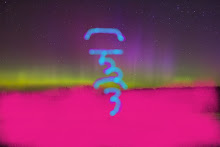Commentary on the First Koan of the Blue Cliff Record:
1. Emperor Wu of Liang asked the great master Bodhidharma, "What is the highest meaning of the holy truth?"
2. Bodhidharma said, "Empty, without holiness."
3. The Emperor said, "Who is facing me?"
4. Bodhidharma replied, "I don't know."
5. The Emperor did not understand.
6. After this Bodhidharma crossed the Yangtse River and came to the Kingdom of Wei.
7. Later the Emperor brought this up to Master Chih and asked him about it.
8. Master Chih asked, "Does your majesty know who this man is?"
9. The Emperor said, "I don't know."
10. Master Chih said, "He is the Mahasattva Avalokitesvara, transmitting the Buddha Mind Seal.
11. The Emperor felt regretful, so he wanted to send an emissary to go invite Bodhidharma to return.
12. Master Chih told him, "Your majesty, don't say that you will send someone to fetch him back. Even if everyone in the whole country were to go after him, he still wouldn't return."
[1] Wu asks the most important question that he could. He was a dedicated Buddhist. He built many monastaries and supported the flourishing of the Dharma in China. But why were the discourses on the Buddha on how to watch the breathing, how to notice annata, letting go of grasping, negativity, and confusion, and the five precepts not enough for him?
[2] Bodhidharma cuts through every obscuring concept in a single phrase, speaks to the very heart of the matter, and opens the door to sudden enlightenment. Will Wu walk through?
[3] Wu is bewildered, rather than let Bodhidharma slay his attachments, he gets defensive instead.
[4] In order to know who is in front of who, Wu needs to know himself. Nothing that the mind can know is present anywhere. Bodhidharma stays in this not knowing and stays free. He opens the gate one more time for Wu.
[5] Wu actually got a glimpse, in the moment of shock, when he heard, "Empty, without holiness," before his thinking spun around these words. Why did he not stay there?
[6] Wu sits with his confusion, the short phrase that Bodhidharma said, that could have pierced through every obscuration, is now lost in a sea of confused thoughts. Life must move on, the moment is lost, Bodhidharma moves on with his life.
[7] Master Chih has had his glimspes too, but Wu did not see Master Chih before Bodhidharma shook his tree.
[8] Master Chih saw what happened, how Wu was too attached to holiness to let it go and instead questioned the holiness of Bodhidharma, his right to say anything to him. Wu did not see the holiness of Master Chih either.
[9] At last, Wu speaks from his experience, but his "I don't know" is not like Bodhidharma's.
[10] Master Chih affirms the gift of liberation in the short phrase, tuned to Wu, by affirming the role that Bodhidharma played before Wu. How did Master Chih know?
[11] Wu is still used to being in control. Why not leave to find Bodhidharma? Or better, enter the regret and be washed clean. Master Chih also opened the door, but it was not even noticed.
[12] Master Chih gently strikes at Wu's attachment to being in control and opens the door one more time, everything Wu needs is already here. Why does he make Bodhidharma the issue, rather than his own mind? I do not know either, but he seems to have forgotten what he asked for. Bodhidharma simply spoke straightforwardly and honestly, and opened the door to enlightenment wide. Like a deer caught in headlights, Wu froze up and did not walk through. The door is still open. Wu would rather send an army to find Bodhidharma, rather than walk through. If Bodhidharma were to be captured and brought to him, would he say anything different? Why does he not see that Master Chih is also holding the door open? When Wu will walk through? How much thinking about seeing does it take to open the eyes and look?
Subscribe to:
Post Comments (Atom)


I am presenting the text and some notes in the first koan of the Blue Cliff Record. It is my favorite collection of koans. If the mind is ripe, usually by lots of time spent in meditation, a koan awaken something inside that never falls asleep. I do not consider the koans to be puzzles, but they can be taken as puzzles and solved if one wants to. Understanding where the words come from leads one back home.
ReplyDeleteThe numbers in brackets refer to the corresponding verse and are the notes related to the verse.
ReplyDelete